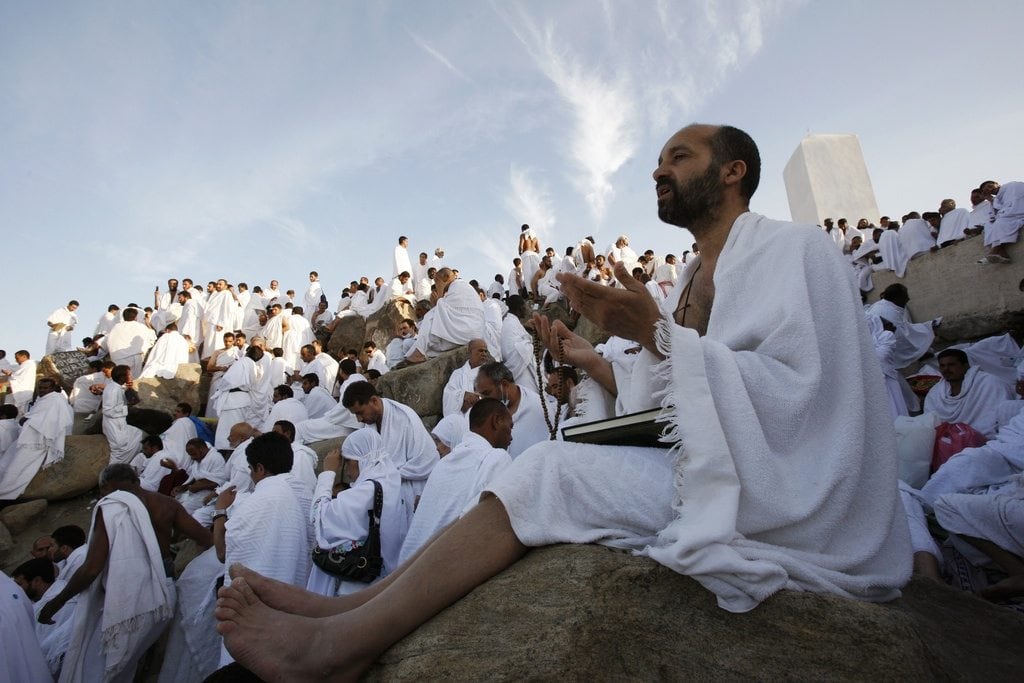Why Does Islam Seem So Difficult to Follow?
Answered by Shaykh Jamir Meah
Question: Assalamu alaykum
Why are there so many rules in Islam which are really difficult to follow? Allah does not need us, so why does He punish us if we disobey him?
Answer: Wa’alaikum assalam, jazakum Allah khayr for your question. When anything in life, including religion, becomes difficult or overwhelming, it’s important to take a step back to give yourself some breathing space. You’ve already taken a step in the right direction by asking.
Moral and legal responsibility
The objective of religion is the benefit of mankind in this life and the next. In this life, religion provides the necessary guidance for both individual and social prosperity, as well as providing clear boundaries in which to conduct one’s worldly affairs. The fulfillment of these goals leads to felicity in the afterlife as well.
Like any code of law, the shariah should not be made too difficult for people, but at the same, because this life is a temporary test, and like all other tests (think of exams and interviews!), there is obviously some hard work, struggle, and sacrifice required. The result of which is the eternal bliss of Paradise.
This is why the Prophet (peace and blessings be upon him) said, ‘Paradise is surrounded by hardships and the Hellfire is surrounded by desires’ [al Bukhari, Muslim]. Imam Nawawi, explaining this hadith says, ‘It means that nothing will help you to reach Jannah except experiencing hardships. … Hardships include striving in worship and persevering upon that, and patience in the face of hardships.’ [Sharh Sahih Muslim]
Everything in steps
The Qur’an tell us that, ‘Allah intends for you ease and does not intend for you hardship’ [2:185], and that, ‘On no soul does Allah place a burden greater than it can bear’ [2:286].
This approach to the religion is corroborated by many hadith of the Prophet (peace and blessings be upon him), one of them being, ‘Religion is easy, and no one overburdens himself in his religion but he will be unable to continue in that way. So do not be extremists, but try to be near perfection and receive the good tidings that you will be rewarded.’ [al Bukhari, Muslim]
Religious practice has to be sensible, so that we do not become so overwhelmed that we’re repulsed by the religion, or repulse others from it. The middle way is to go gently, and keep building our faith and practice gradually. One should not take on too much that it becomes unbearable, yet not do so little that one remains stagnant and stale. It is akin to learning to swim, too shallow and you go nowhere, too deep and you’ll drown.
In practice, this means,
1. Start with the absolutely obligatory acts and avoid major sins. Ensure you are fulfilling others rights as much as possible.
2. Gradually add emphasized supererogatory acts and do one’s best to avoid minor sins.
3. Continue like this until you feel like you want to push into an extra gear in the religion, in learning, practice and observance.
4. Throughout all this, keep learning about the religion by taking beneficial courses that are manageable for you, and attending useful lectures. I recommend a mixture of seerah and tafsir with some basic aqidah and fiqh. The heart and soul need to continually be reminded of knowledge and words of wisdom in order to be motivated to act and to grow.
As you develop in the religion, you will naturally be able to observe more of it and adapt, and at each stage it won’t seem hard or overwhelming. More importantly, the law will stop being simple outward actions, but rather inspired and filled with the spirit of the law, which stems from the love of Allah and His Prophet (peace and blessings be upon him). At this point, even difficult actions become easy, second nature, and even preferred.
This is the meaning of the Hadith Qudsi, in which Allah Most High informs us, ‘My slave approaches Me with nothing more beloved to Me than what I have made obligatory upon him, and My slave keeps drawing nearer to Me with voluntary works until I love him.’ [al Bukhari].
Allah does not need us so why punish us for disobeying Him?
It’s true, Allah doesn’t need us, but we do need him for everything, including our very existence. Unlike humans, who act on motives and reasons, Allah has no motives in rewarding or punishing us, because He has no need of anyone or anything. If He wanted, He could punish the righteous and reward the disobedient. Any reward for obedience is purely from the Magnanimity of Allah, and any punishment for disobedience is from His Justness.
For this reason, everything in the Shariah is exclusively for our benefit, whether human wisdom can perceive it or not. Therefore, try to be optimistic and go gently with yourself and others, but always moving forward in the religion, and make Allah your recourse in all that you do. He won’t let you down.
Warmest salams,
[Shaykh] Jamir Meah
Shaykh Jamir Meah grew up in Hampstead, London. In 2007, he traveled to Tarim, Yemen, where he spent nine years studying the Islamic sciences on a one-to-one basis under the foremost scholars of the Ribaat, Tarim, with a main specialization and focus on Shafi’i fiqh. In early 2016, he moved to Amman, Jordan, where he continues advanced studies in a range of Islamic sciences, as well as teaching. Jamir is a qualified homeopath.
